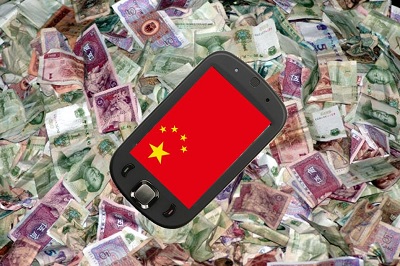That said, the company is still in critical care as it continues to battle to break even in its cash flow.
Investors have turned their eyes back on BlackBerry Ltd., once more, as the company’s strategies for cutting costs and preserving funds have led it to actually report a solid balance sheet in its fourth quarter earnings, which were released in recent news.
This will help to give the company the time that it needs to be able to attempt to turn its situation around.
BlackBerry brought itself about as close to death as a company can. However, now that it has broken through the other side of that experience, it is now working on the “specifics of charting a course to promised cash flow break-even by the fiscal first quarter.” This technology news is according to RBC Capital Markets analyst, Mark Sue.
Sue pointed out that liquidity is no longer one of BlackBerry’s largest risks within the near future.
He pointed out that the reason that liquidity isn’t among the struggles that the company will face in the near future is because of the tax refunds that it will receive, this quarter, which are expected to total approximately $500 million (U.S.). Moreover, it will receive an additional $300 to $400 million in tax refunds due to its recent sales in real estate. The result will be an additional $2.2 billion in net cash.
Sue’s belief is that if it is possible for the transition between the mobile devices manufacturer and Foxconn Technology Group’s production to increase the blended gross margins of the company could make it into the mid to high thirties, then it should also be possible for the cash flow of that handset maker to reach the break even point, which is an estimated $600 million for its standard operations.
The RBC Capital Markets analyst explained that “Should service revenue attrition continue or if Foxconn smartphone demand doesn’t improve, BlackBerry will need to cut more open.” He underscored the importance of the enterprise business stability at the company, which would represent an enterprise subscribership of an estimated 15 to 20 million, which would mean between five and seven million shipments of handsets each year, on top of service revenues of $1.6 billion.
Regulations spark backlash from businesses and consumers interested in mobile commerce
The People’s Bank of China has announced that it is considering revising the caps it has placed on mobile payments. This comes as response to backlash from consumers and Internet firms alike, claiming that the caps placed on mobile payments were unnecessary and inappropriate. The caps were introduced as part of new regulations proposed by the People’s Bank of China. These regulations were meant to provide consumers and businesses with more security in the mobile commerce field while also introducing new standards to the mobile sector.
Regulations had placed caps on the amount of money consumers could spend through their mobile devices
The proposed regulations would have placed a cap on payments made from a mobile device to $1,630 per year, with an $800 cap on any single purchase made through a mobile device. These caps are considered to limit the mobile commerce sector significantly, making it difficult for retailers to engage consumers that are becoming more reliant on their mobile devices. Large companies with a vested interest in the mobile commerce field, such as Alibaba, have taken issue with the caps placed on mobile payments by the People’s Bank of China.
China is a prominent market for mobile commerce
 China has become one of the most active mobile commerce markets in the world. The country is home to both Alibaba and Tencent, which have a powerful presence in the digital space. Both companies have been focusing more heavily on mobile commerce in recent months in order to accommodate the growing demand for mobile services coming from consumers. These consumers have become quite active in mobile commerce as well and have criticized the caps being placed on their ability to pay for products from mobile devices.
China has become one of the most active mobile commerce markets in the world. The country is home to both Alibaba and Tencent, which have a powerful presence in the digital space. Both companies have been focusing more heavily on mobile commerce in recent months in order to accommodate the growing demand for mobile services coming from consumers. These consumers have become quite active in mobile commerce as well and have criticized the caps being placed on their ability to pay for products from mobile devices.
People’s Bank of China may remove the caps being placed on mobile purchases through new regulations
The People’s Bank of China is currently looking into revisions to its proposed regulations. These revisions would include either removing or reducing the cap being placed on mobile payments. Doing so would allow consumers and businesses to continue focusing on the mobile commerce space more aggressively in the future.


 China has become one of the most active mobile commerce markets in the world. The country is home to both Alibaba and Tencent, which have a powerful presence in the digital space. Both companies have been focusing more heavily on
China has become one of the most active mobile commerce markets in the world. The country is home to both Alibaba and Tencent, which have a powerful presence in the digital space. Both companies have been focusing more heavily on 